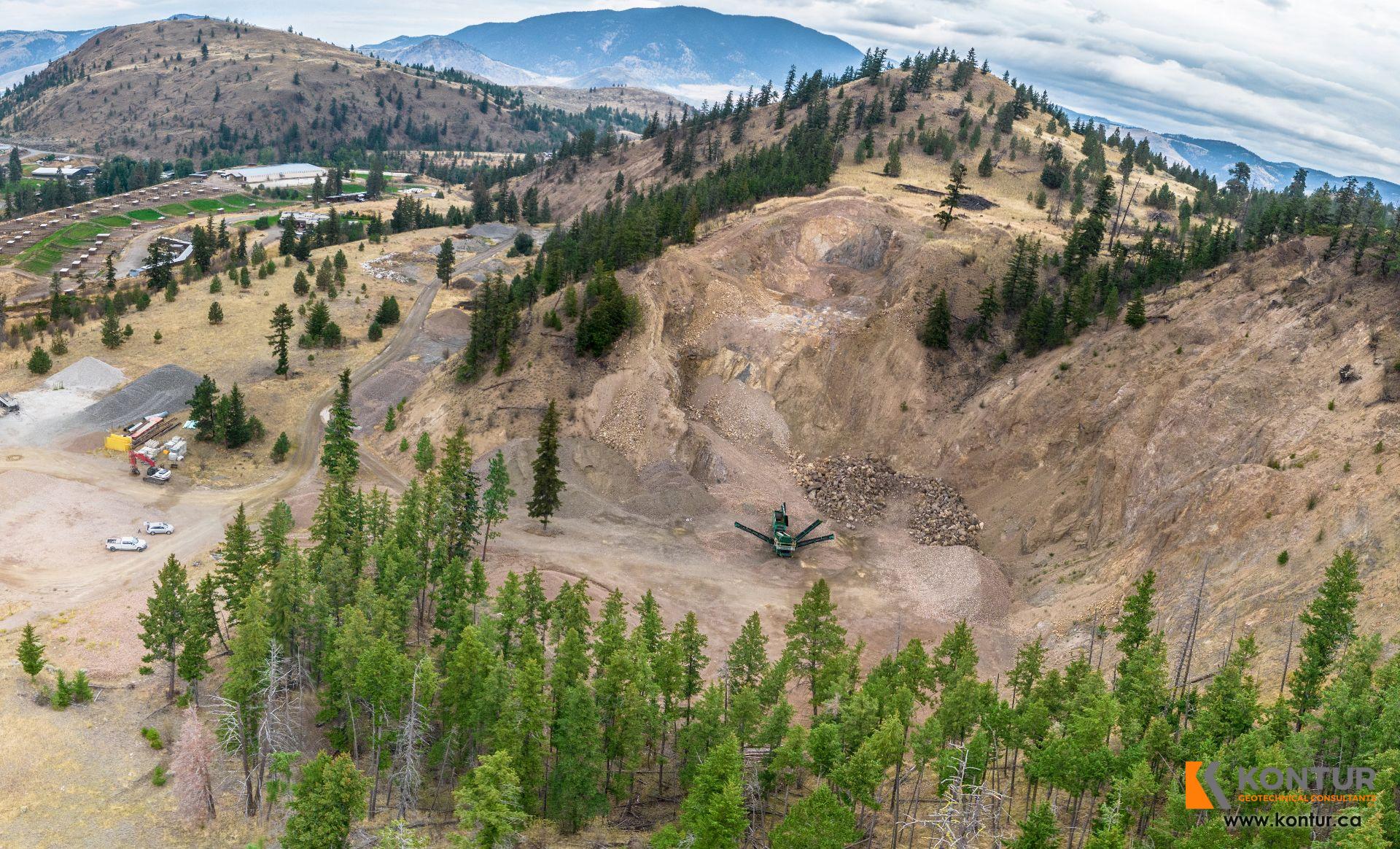
Geotechnical Exploration and Testing services are completed to obtain site-specific subsurface information, such as:
A geotechnical study typically involves both field and laboratory programs. Field programs often include excavating test pits with an excavator and/or advancing drilled or pushed testholes using a drill rig at the site. Soil, rock, and/or groundwater raised from these test pits or testholes are visually logged and classified on-site, with representative samples taken for further classification and testing in Kontur’s CCIL-certified laboratory. In-situ field testing may also be conducted during the field program.
Kontur can develop and implement geotechnical exploration and testing programs tailored to various site conditions. The quality and comprehensiveness of these programs are crucial for developing representative and reliable information used to characterize the site from a geotechnical point-of-view.
Representative and reliable geotechnical characterizations are essential for any geotechnical analysis, assessment, or design, leading to dependable and cost-efficient solutions. Incomplete geotechnical characterizations or those not based on adequate, site-specific information increase the risk of geotechnical unknowns, potentially altering the project's path and escalating costs.